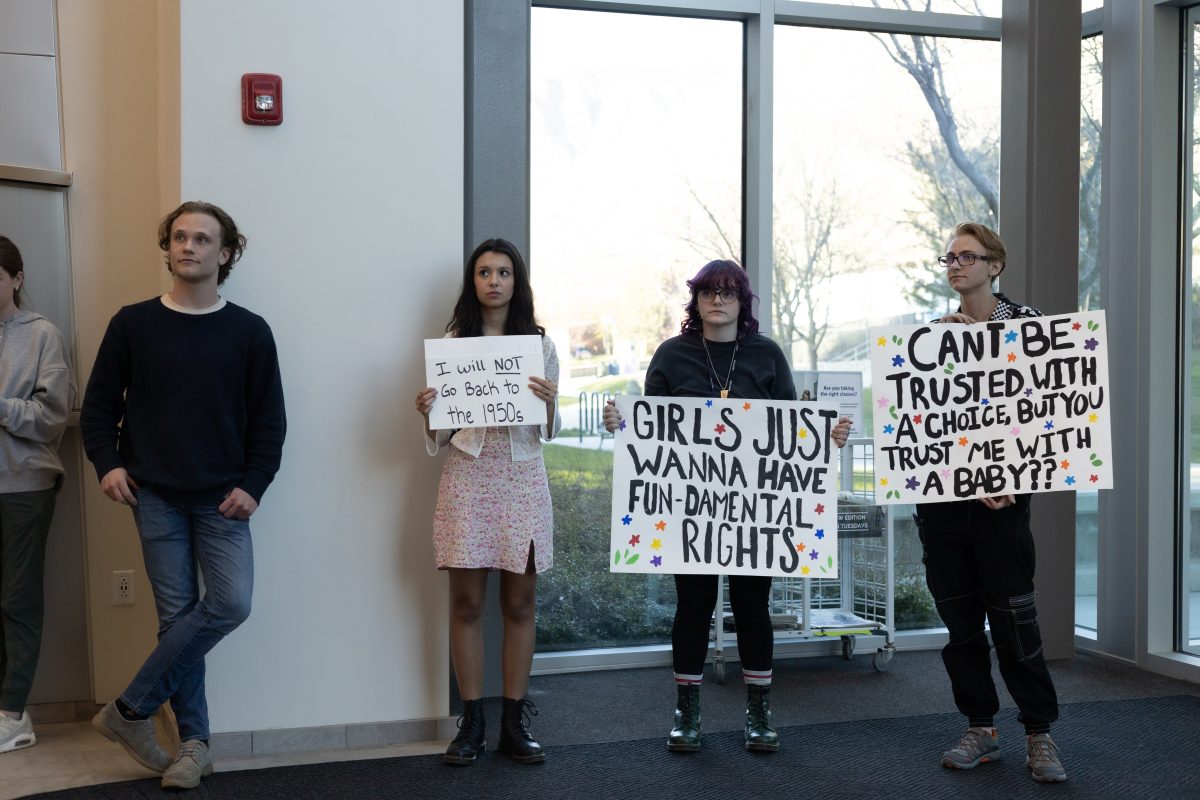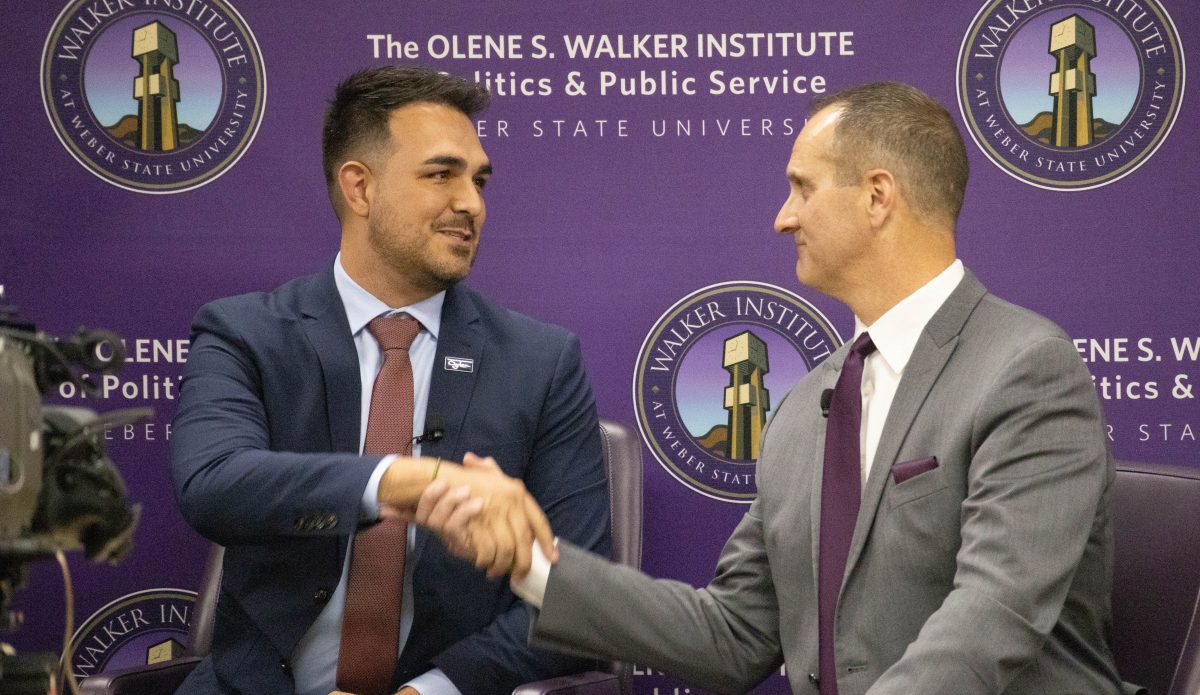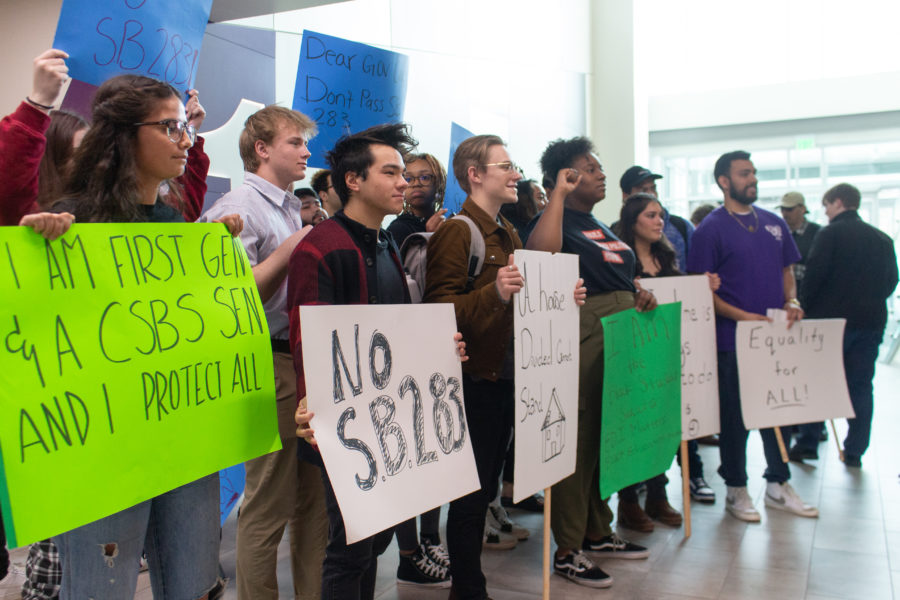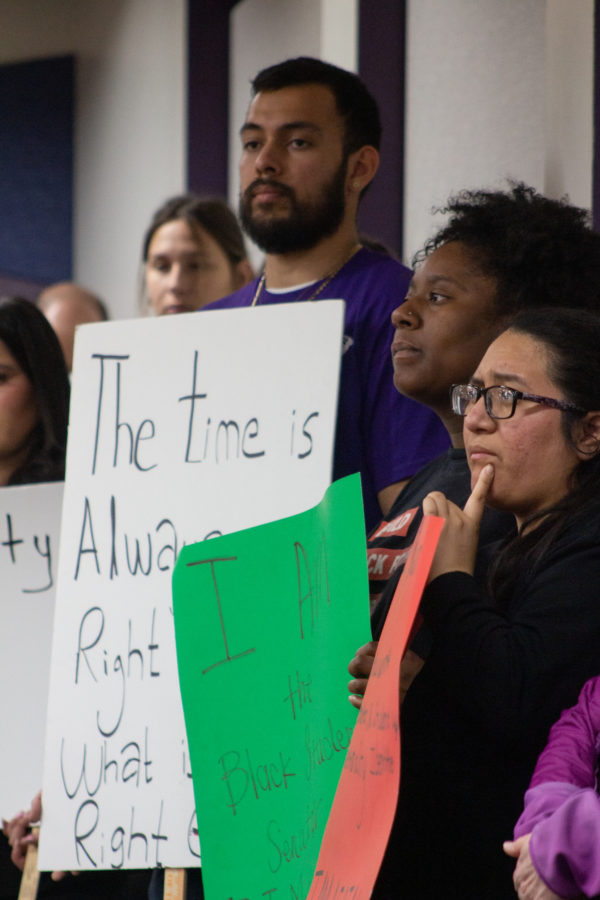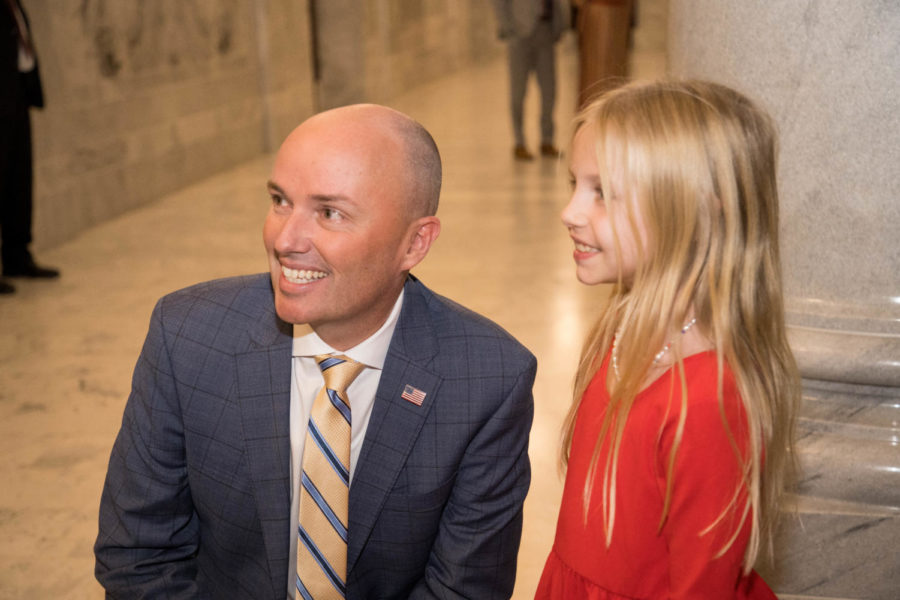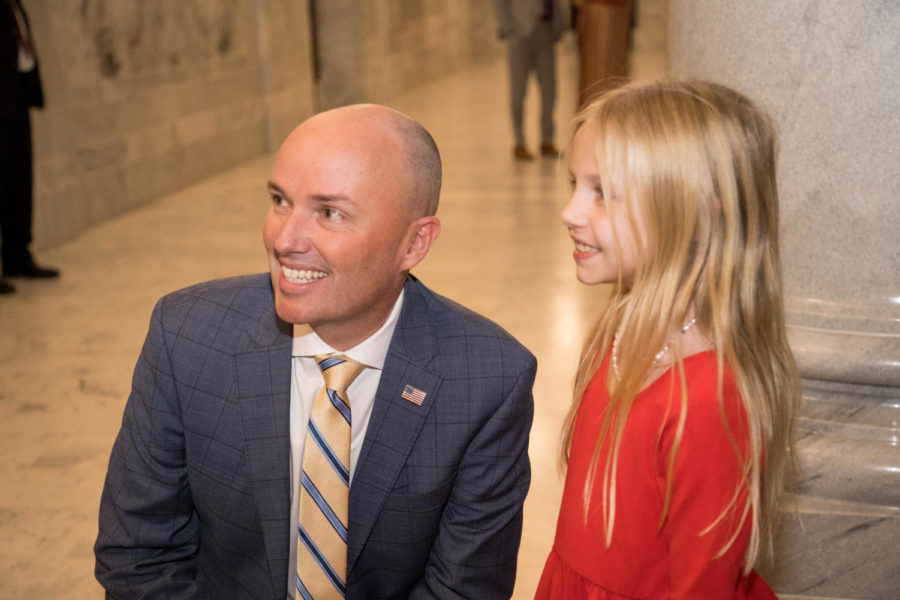
When Brad Mortensen sees numbers showing Utah falling behind other states in education, he knows he is in the right line of work.
Mortensen, WSU’s vice president for university advancement, whose job includes lobbying for Weber State, spoke to students about lobbyists as part of the Dirty Word lecture series on Wednesday afternoon.
The Dirty Word lecture series is presented by the American Democracy Project, and aims to break the stereotypes behind certain words and show that goodness is possible even in the world of politics.
Mortensen began by showing a chart that broke down the educational attainment for the working-age population in all 50 states. For Utah, as well as some others, the upcoming generation is not reaching as high a level of education as the generations who came before.
“We’re in a state that’s falling behind other states in education,” Mortensen said. “It gives a background on why I do what I do, why I’m a lobbyist. It’s because, on a macro scale, we’re trying to help address this problem through policies, funding and decisions that are made by the state that affect the university that will hopefully make it easier for students to come here and graduate.”
By definition, a lobbyist is someone hired by a business or a cause to persuade legislators to support that business or cause. When Mortensen asked the audience to shout out words they think of when they hear “lobbyist,” they came up with things like “arm-twisters” and “sly.”
This proved the stigma and “dirty word” status that surrounds lobbyists and what they do.
Mortensen even spoke about the press release that was put out when he was hired by the university.
“We avoided using the ‘L’-word,” Mortensen said. “Another word we use a lot is ‘legislative liaisons.’ That’s a lot more palatable than ‘higher education lobbyists.’ ”
To educate students about lobbyists, Mortensen used his experience to break down exactly what they do. He began by going back to how lobbying began and focusing on one of the first examples of it in history—when politicians were trying to convince Democrats to vote for the passage of the 13th Amendment, which would abolish slavery.
“They needed to get a number of Democrats to switch sides,” Mortensen said. “So what do they do? The same thing that all entities do when you’ve got to get votes, you go out and you hire a lobbyist. That’s how our democracy works.”
Mortensen then talked about how these situations have affected WSU. All of the decisions in the Utah Legislature are made by 10 to 12 people who are members of the Republican leadership in the House and Senate.
“When I first started this job in 2004, Weber State didn’t have any representation among the Republican leadership,” Mortensen said. “We felt like we didn’t have anybody really in the room like some of the others schools did. So it was really hard for us to get any of the big priorities the university was pushing for.”
During that time, Weber State was trying to get funding to design and build what is now Elizabeth Hall. Since then, WSU representation has increased.
In closing, Mortensen emphasized that the main goal of lobbyists to build relationships with politicians and their campaigns.
“It’s really about building those relationships,” Mortensen said. “Finding out who is going to be the best person to sit in those decision-making seats. If you have good relationships with people in the right positions, you’ll only have to talk to a handful of people to help make things happen.”
Mortensen encouraged students to stay behind after the lecture to ask questions or even contact him directly.
“It was an interesting lecture,” said Courtney Pacha. “I really didn’t know that much about lobbyists and what they do. I guess ‘lobbyist’ isn’t such a dirty word after all.”



